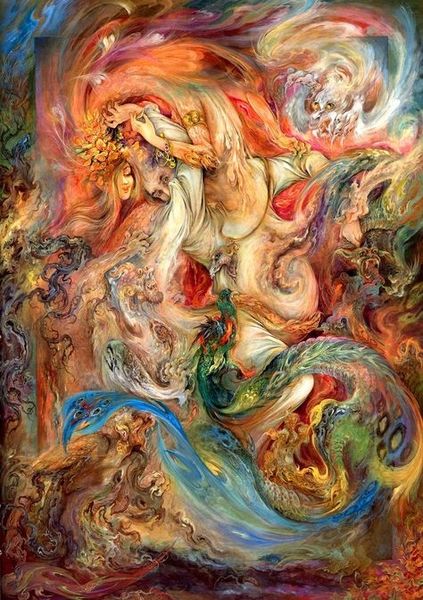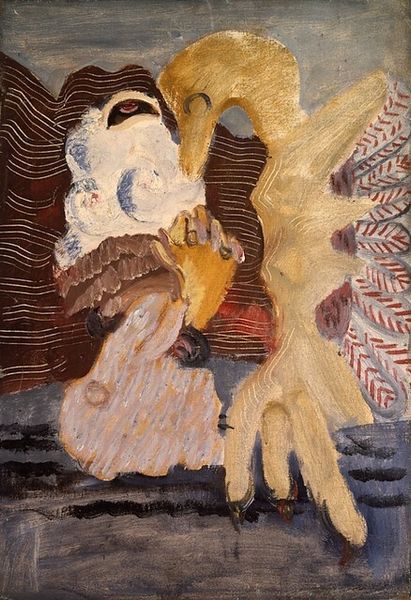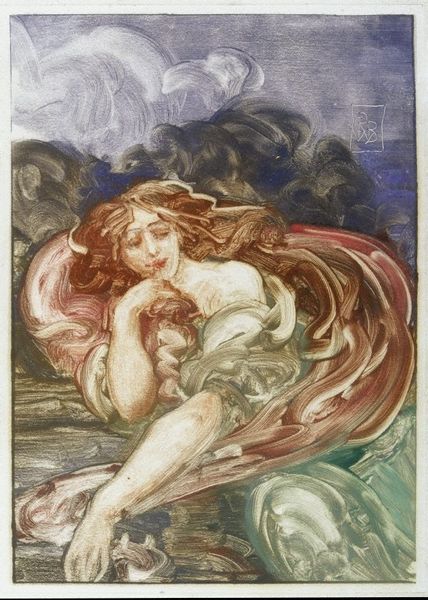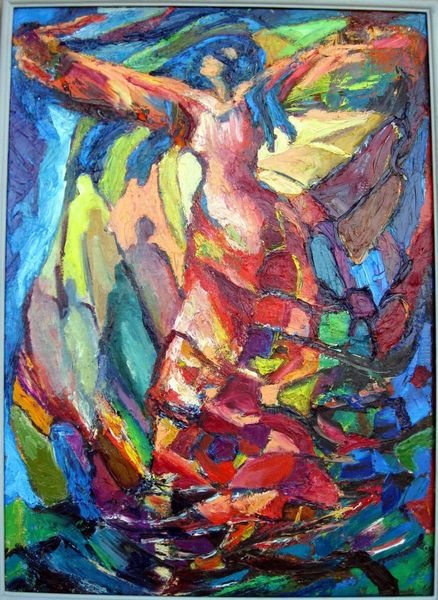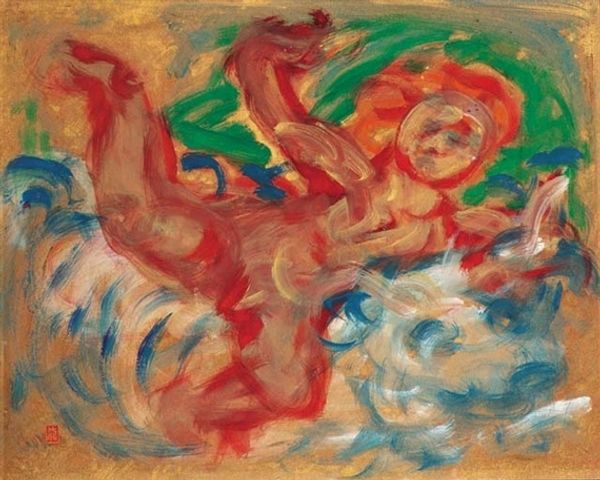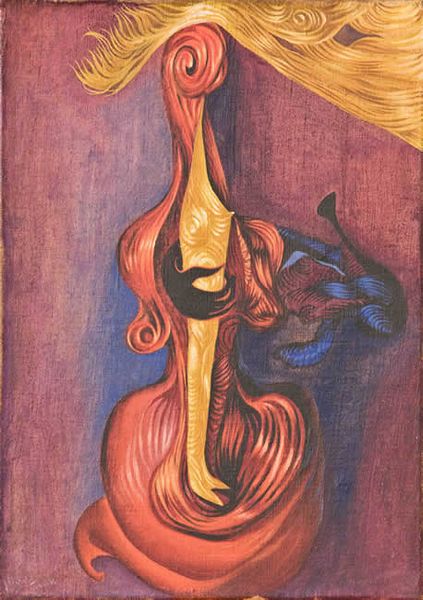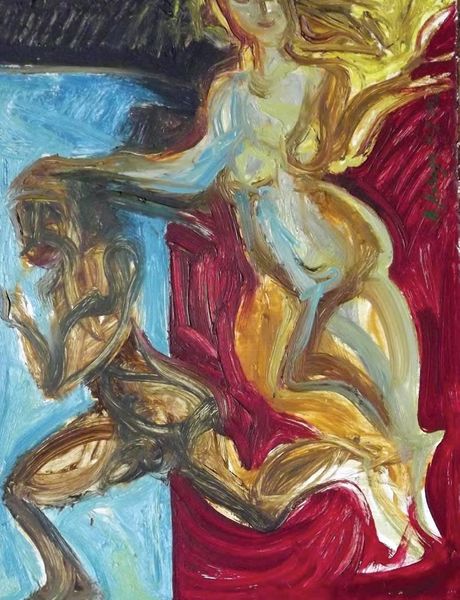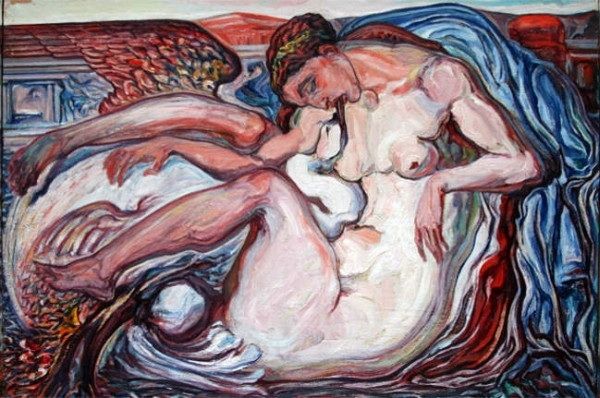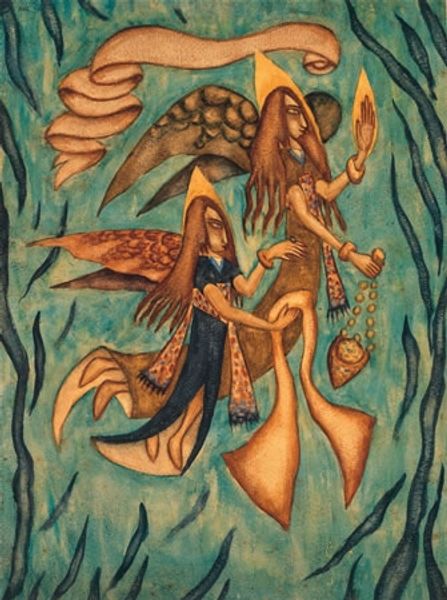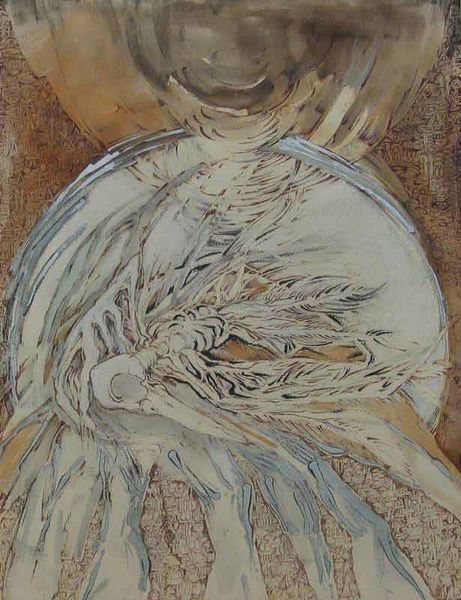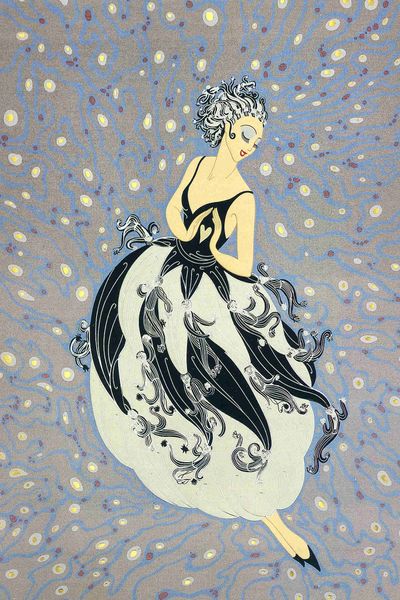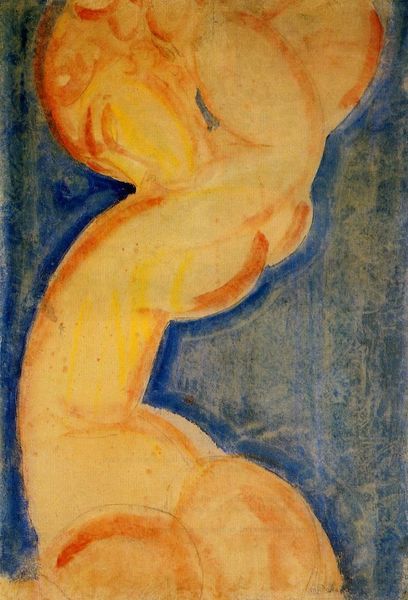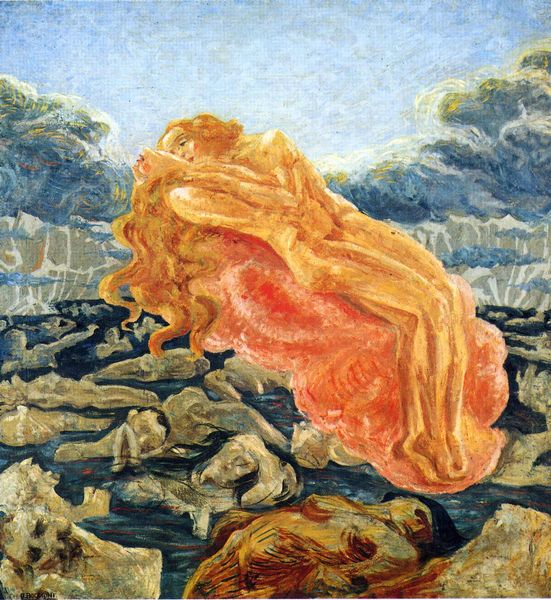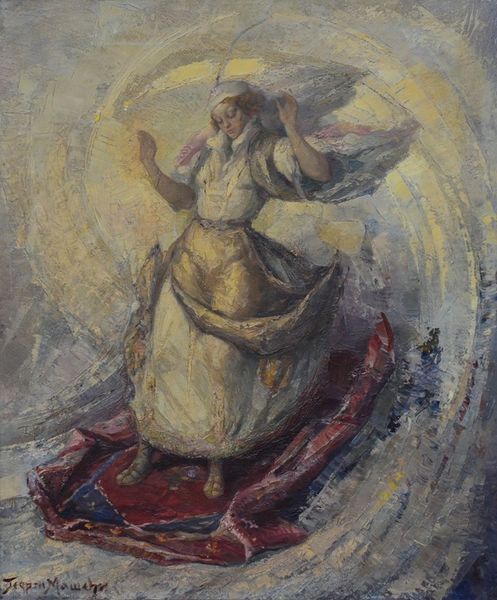
Copyright: Alexander Roitburd,Fair Use
Curator: Well, isn't this striking? Alexander Roitburd's "Bride" from 2017. It seems to pulse with a strange energy. The colors and the brushstrokes are so… vibrant, almost violent. What’s your first take? Editor: It feels like a deconstruction of a traditional portrait. The fracturing of the figure, especially the face, makes me immediately think about the societal pressures and loss of identity so often associated with marriage, especially for women. Curator: Roitburd was certainly engaging with historical tropes through a contemporary lens. The oil and acrylic on canvas gives it a textured, almost raw feel that contrasts so starkly with the typical image of a serene, idealized bride. Editor: Exactly. This isn’t your classic history painting glorifying the past; it seems to actively question the institution itself. The blurred lines, that sense of unease... it makes me consider how patriarchal structures confine individual expression. Look at the color palette: that aggressive white, the almost sickly flesh tones. Curator: And that almost feverish application of paint! Roitburd was a key figure in Ukrainian Neo-Expressionism. His art often engaged with themes of identity and cultural anxieties during periods of political and social upheaval. "Bride," viewed in this context, could reflect on the disruption of societal norms. Editor: Precisely, Ukrainian history is crucial here. Think of the forced Russification and the erasure of Ukrainian identity – perhaps this “Bride” symbolizes Ukraine itself, its face distorted and manipulated by external forces, its traditions perverted. Is the hand oppressing her own face supposed to symbolize colonial oppression, I wonder? Curator: That’s a compelling interpretation. Viewing it through a post-colonial lens opens up interesting questions about cultural subjugation and resistance. The white of the dress, normally associated with purity and innocence, takes on a whole different meaning, doesn't it? Editor: Absolutely, and the pose, while appearing traditional at first glance, feels strained, almost contorted. I find that the lack of serenity here emphasizes the psychological burden of the subject matter, even while invoking beauty. This makes me reflect on all forms of domination. Curator: Thinking about it this way certainly amplifies the artwork’s capacity to incite critical examination of social issues. Editor: Yes, rather than passively consuming a beautiful image, we're forced to confront uncomfortable truths about identity, history, and power. That is exactly the art I'm interested in. Curator: Absolutely, I concur. A challenging piece, yet a powerfully relevant statement.
Comments
No comments
Be the first to comment and join the conversation on the ultimate creative platform.
